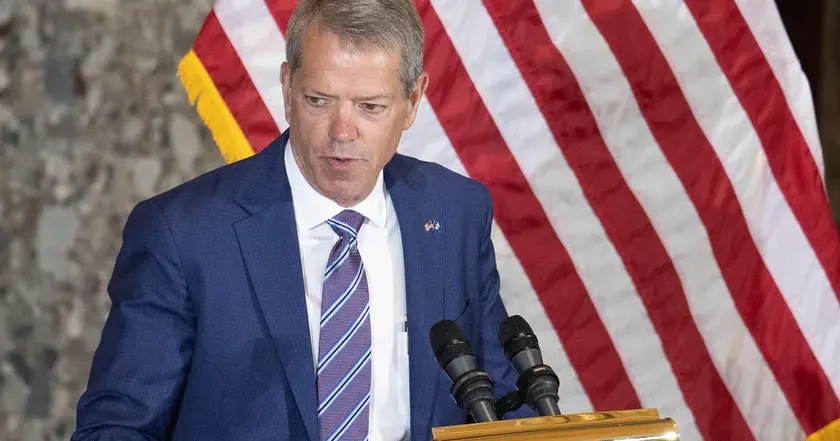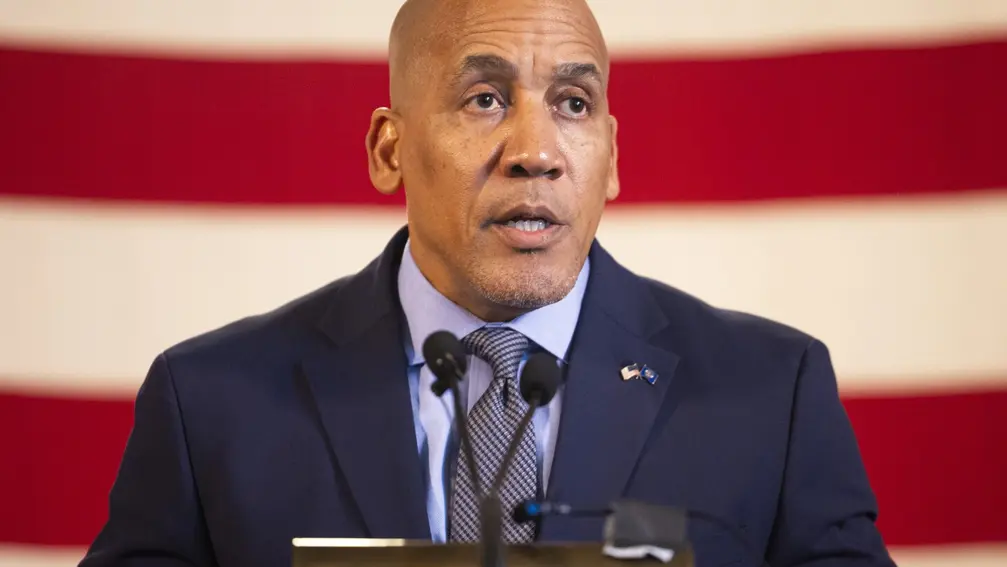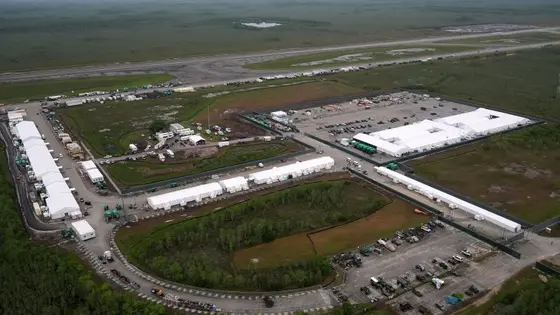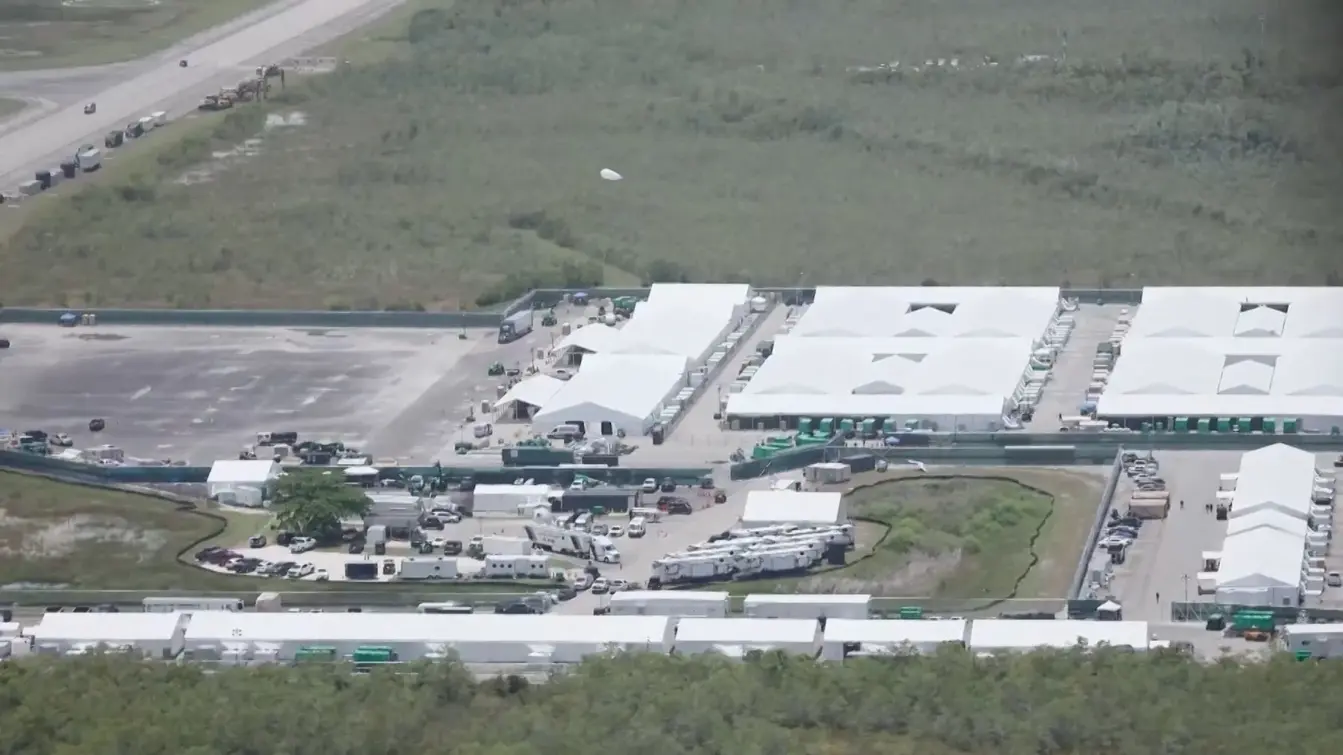T4K3.news
Nebraska opens detention site to bolster deportation drive
Nebraska Governor Pillen announces a new immigration detention center in McCook funded by the federal government.

Nebraska plans to convert a rural work camp into an immigration detention center funded by the federal government to support deportation efforts.
Nebraska opens detention site to bolster deportation drive
Nebraska Governor Jim Pillen announced plans to convert an existing minimum security prison work camp in McCook into an immigration detention center. The facility would start with a 200 bed capacity, with a plan to expand to 300, and would be operated by the state but funded by the federal government. Pillen said the move is about keeping Nebraskans and Americans safe, and he said Nebraska National Guard personnel would provide administrative and logistical support. An agreement with federal agents would also allow state troopers to assist in arrests. The camp is set to be repurposed after the current detainees are relocated to other state facilities within 45 to 60 days, and the site is described as ready to receive detainees without temporary housing.
The plan has drawn protests and questions. Critics point to a lack of transparency and caution about civil rights in a rural state, while supporters argue the center would remove dangerous individuals from communities and align with a broader federal push to expand detention capacity. The context includes a wave of new detention facilities nationwide, with models ranging from tent-based sites to larger prison complexes. The facility in Lincoln is undergoing repairs for storm damage, and officials emphasize the project does not rely on improvised housing and will be state-run with federal funding. Prosecutors and law enforcement will coordinate with federal immigration authorities under the new arrangement.
Key Takeaways
"This is about keeping Nebraskans – and Americans across our country – safe."
Pillen defends the plan as a safety measure to protect communities.
"Thanks to Governor Pillen for his partnership to help remove the worst of the worst out of our country."
Statement from Kristi Noem endorsing the plan.
"ICE=Gestapo"
Protester outside the governor’s office.
"That facility has already been accredited. It's ready in the event that we are to move our folks out and move detainees in."
Jeffreys on readiness and availability of the site.
The proposal illustrates how federal deportation policy is reshaping local infrastructure, especially in rural areas. It signals a willingness in some states to anchor immigration enforcement in existing facilities, a move that can quicken capacity but also deepen political fault lines. The plan tests trust between residents and government, as well as between state and federal authorities, by tying local resources to a national security objective. It also raises practical questions about due process, transparency, and how communities will be treated once detainees arrive.
Beyond safety rhetoric, the case highlights the politics of funding: the federal dollars in play create an incentive for speed and scale, even as watchdogs warn that dollars do not replace rights protections. The debate reflects broader tensions in American governance where immigration policy becomes a local policy test, and where rural communities become stages for national disputes.
Highlights
- Safety should not come at the cost of due process
- Transparency is the first test for any detention plan
- Communities deserve clear records and open discussion
- Policy without practice hurts neighbors
Political and budget risks linked to detention plan
The Nebraska plan ties a local facility to federal immigration policy and depends on federal funding. This raises transparency and civil rights concerns, plus potential political backlash and budget questions as the plan moves forward.
Policy debates like this will continue to test how far security aims can go before rights and community needs are fully weighed.
Enjoyed this? Let your friends know!
Related News

Nebraska plans detention center in McCook

Nebraska plans new immigration detention center

Florida to open second immigration detention center

Florida begins deportation flights from new detention facility

DeSantis opens second immigration detention facility

Aerial footage shows new detention center in Florida

Deportation Depot merch draws attention

Trump pushes toward dictatorship after 200 days
